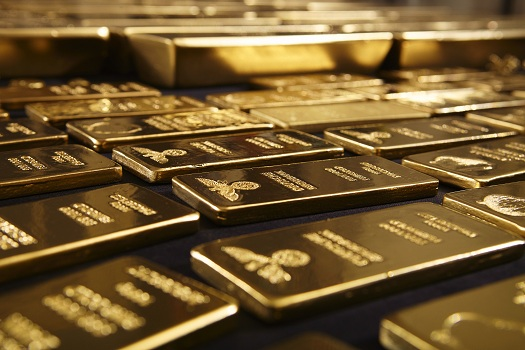How Is Collecting Bullion Different from Investing in It?
Bullion is essentially a precious metal such as gold, silver, or platinum in solid form that has some type of value associated with it. If you’re fairly new to the bullion-buying process, it’s important to know what you have in mind for your purchases so you can choose wisely. Below, the experts from First National Bullion and Coin, the best place to buy gold in Scottsdale, go over key differences between collecting bullion and investing in coins, bars, ingots, or other tangible precious metals.
Investment Bullion
Investment bullion typically has a discernible, accepted, and documented value as determined by current demand and leading sources such as the London Bullion Market Association. It’s also usable as currency and issued by a trusted and reliable source, such as a sovereign government. This makes it easier to get an idea of what a fair price is if you end up selling some of your investment bullion.
When buying investment bullion, it’s advisable to pay attention to:
• Precious metal content
• Going rates for your preferred investment bullion
• Buying and selling cycles so you’ll know when to hang on to your bullion and when to consider selling
Collectable Bullion
CoinWeek contends bullion collecting in the United States began in the 1850s, when the pure copper large cent was replaced by the copper-nickel Flying Eagle cent. As for what collectable bullion is, it’s often referred to as “private bullion.” In other words, it comes from various sources and not just those widely recognized as reliable, such as sovereign governments. It’s also difficult to definitively assign a universally accepted value to collectable bullion.
With collectable bullion purchases, factors often considered include:
• The rarity of what’s being purchased
• Demand among other collectors
• Any sentimental value associated with the bullion (e.g., specially minted coins or pieces passed along in families)
Making Your Bullion Purchase Choices
As noted above, the type of bullion you purchase will ultimately depend on what you have in mind. There are some pros and cons associated with both investing in and collecting bullion. If you collect rare coins, the biggest perk is that the value will likely go up in the future if you hold on to what you have. One of the potential drawbacks is that you could have some collectable forms of bullion with sentimental value but no significant resale value.
One of the top benefits of investment bullion is being able to have something of known value on hand as a safeguard against economic downturns. On the downside, the current price of certain precious metals can fluctuate. If your preferred investment bullion is trending downward and you have a need or desire to sell, you could end up getting less than what you paid for it.
Doing What’s Right for You
The bottom line is that investing in bullion can be just as rewarding as collecting rare or meaningful precious metals in solid form. The best thing to do is what’s right for you. Also, remember it doesn’t have to be one or the other. You’re certainly welcome to mix things up with what you opt to purchase.
When they’re looking for the best place to buy platinum bullion, gold coins, and silver bars, Scottsdale collectors and investors should reach out to the trustworthy professionals at First National Bullion. We can answer all your questions and help you with every aspect of buying and selling precious metals. Give one of our experienced dealers a call today at 480-546-8928.
The statements made in this blog are opinions, and past performance is not indicative of future returns. Precious metals, like all investments, carry risk. Precious metals and coins may appreciate, depreciate, or stay the same in cash value depending on a variety of factors. First National Bullion does not guarantee, and its website and employees make no representation, that any metals for sale will appreciate sufficiently to earn the customers a profit. The decision to buy, sell, or borrow precious metals and which precious metals to purchase, borrow, or sell are made at the customer’s sole discretion.


